The Bass Kleph Blog
Music Producer Tips & Tricks
The Secret Sauce to Music Success: Mastering the Art of Fast Track Finishing
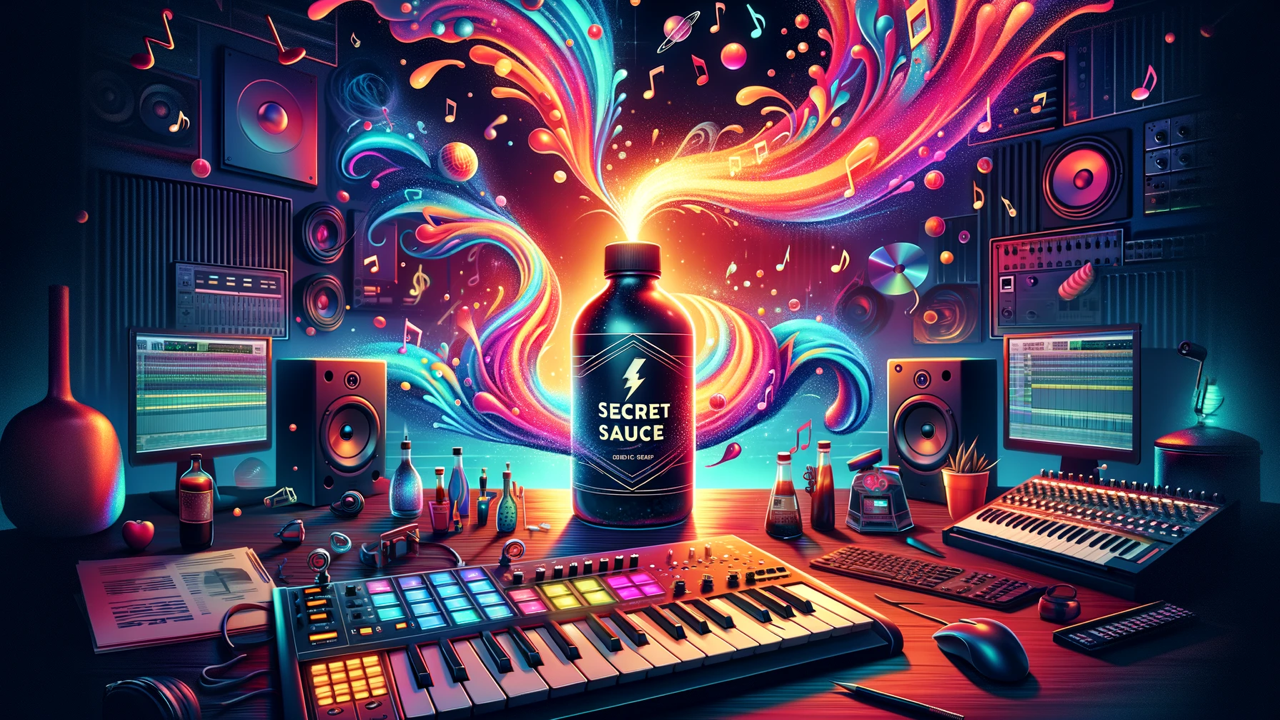
Getting more songs finished in a faster amount of time is the Secret Sauce to elevate your music production skills to the level where you will be proud of your music, get signed, build a following, and get booked for shows.
Let me explain why, with two big reasons.
#1 - You will fill the gaps in your knowledge.
Some people write loops and sketches and then decide it all feels too hard to finish. So they give up and start a new sketch. (Sound familiar?)
They have no trouble starting a new sketch as they have started sketches many times before. They have practiced that.
But they have not practiced the middle to end stages of finishing a song.
So when they reach those stages they get confused, and frustrated.
It feels like the song is not working anymore. Like it is not as effortless and fun.
In reality, this is not true. It is simply that they have not practiced these stages enough to feel comfortable with them.
Now when you get some perspective on this you can see how crazy this...
The Importance of Music Production Skills for DJs
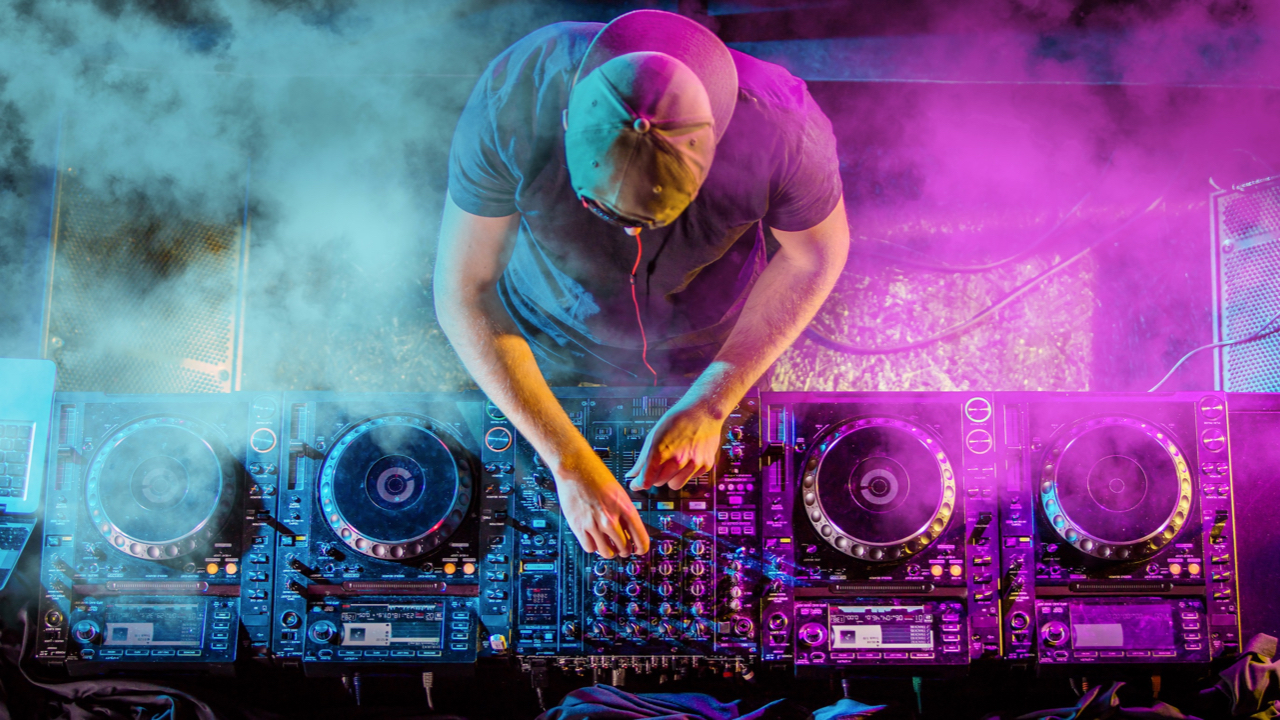
As a DJ, your job is to entertain and move people on the dance floor. To get them to dance. But to be a successful DJ, you need to have more than just a great music selection and technical skills behind the decks. You also need to have strong music production skills. Here's why:
- Creating Original Music: Being able to create your own music can set you apart from other DJs and give you a unique edge in the industry. By producing your own tracks, you have complete creative control over the sound and can tailor your music to your audience's tastes. Better yet, the songs you write and release become evergreen advertising for you as an artist.
- Remixing Tracks: Remixing other artists' tracks is a great way to put your own spin on popular songs and make them your own. With music production skills, you can create your own remixes and stand out from the crowd.
- Collaboration Opportunities: Collaborating with other producers and artists can expand your network and help you learn new skills. B ...
Why You NEED To Finish More Songs... & How To Do It FAST!
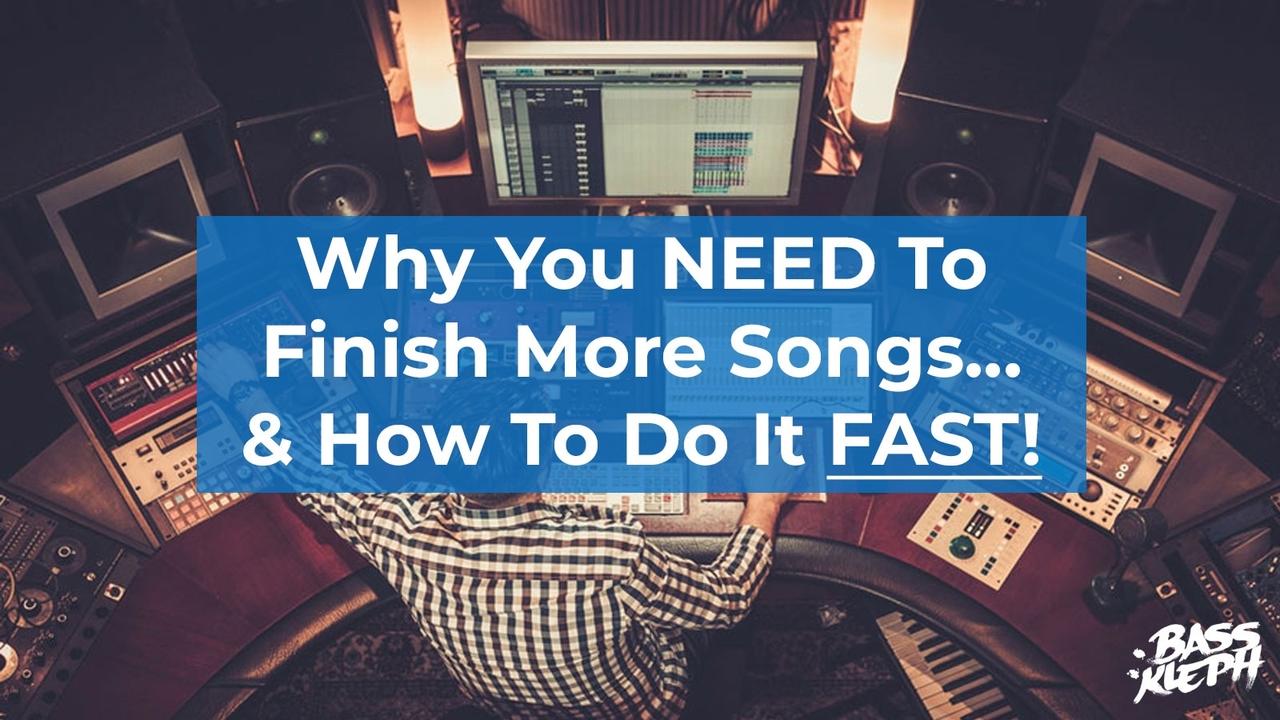
How many songs did you finish in the last year?
...and when I say "finished," I mean you either signed it to a record label, self-released it, or publicly uploaded to SoundCloud for the world to hear.
If it's still on your hard drive, it doesn't count.
So, how many songs did you FINISH in the last year?
1? 6? 12?
If you finished 12 or more songs in the last year, pat yourself on the back! You have become a Prolific Music Producer! Great things are in store for you, and you have probably already noticed the results.
Your fan base is growing, offers for shows, remixes, and collaborations are coming in, and probably some income too.
However, if you finished less than one song a month, then you might not be seeing those same results.
But you have a good excuse, right? ....You want it to be PERFECT. So how can you commit?
Commitment Issues
I get it. Committing to a final version is scary.
It’s your baby. You love it, and it’s scary how people might judge you for it.
Will they...
Drum Programming Tips For Beat Makers & Music Producers

Your drums are the foundation of your song. They are what people dance to. Or not dance to, if they are not done well.
So to become and expert beat maker, you will need to know how to program drums well. Let's get into some tips.
Choose Sounds That Match Your Genre
I am sure you noticed that each genre has its own average tempo and drum patterns. One other thing they have is a style of sounds.
e.g. House Music uses a longer deeper kick than drum and bass, and EDM drums use more aggressive sounds than Tech House. and Techno.
If you want to write a particular style, you need to start with the kind of sounds that match that genre. Get some good drum samples and sample packs, and try not to reinvent the wheel until you have a good grasp of the genre already.
Choose The Best Drum Sounds
The easiest way to choose the best drum sounds is to have them playing in context with your song.
i.e., Test out your drum sounds while your song is playing and make sure they work with the res...
How To Remix A Song: Easy Guide For Competitions, Bootlegs And Official Remixes
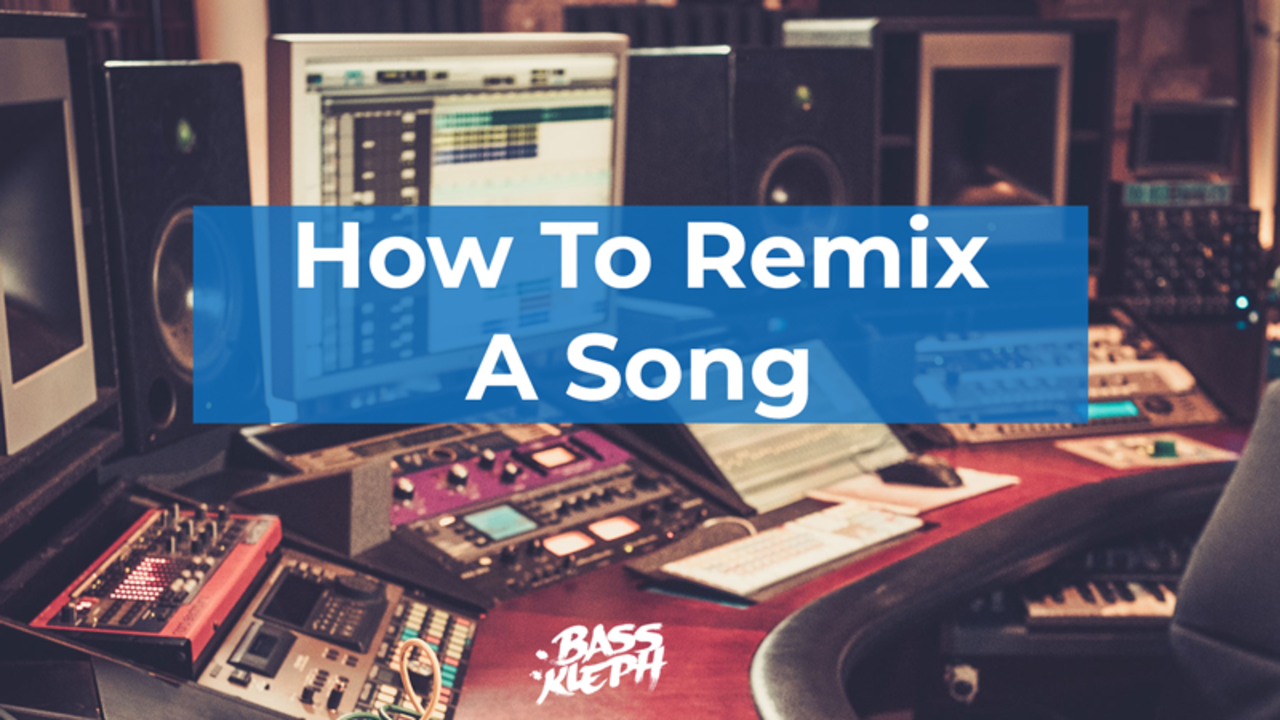
I have done many remixes over the years. In 2010, my remix of Shakedown by Joan Reyes went to #1 on the BeatPort overall chart. It then went on to be the highest selling track on BeatPort for that year. (seriously)
So I am often asked how to make a remix of a song.
It is a unique and fun thing about electronic music and hip hop. We can take one song of any genre, and reinterpret it in our own style. We can make remixes of popular songs, underground songs or anything we like.
But before you can make your own remix songs, there are a few tips you should know about the art of remixing.
The Difference Between A Bootleg And A Remix

An official remix is when the original artist/record label paid you or requested you to make it.
A bootleg is an unofficial (and often illegal) version of a remix. Like "bootleg whiskey” in the prohibition times. These are more common and usually made by DJs who want an alternative version of a song to play at their show.
It is illegal to sell a boo...
Why HAAS and other bad stereo widening techniques are ruining your mix, and what to do instead.
Stereo is a huge part of every modern song/mixdown. We all use it and listen to it every day.
However, not many people know that using the wrong kind of stereo widening techniques can severely damage your song.
Techniques such as HAAS effect, Mid Side, Frequency Shifter, pitch shifting and even chorus (if used incorrectly) can cause huge problems in your mixdown. There are even some expensive 3rd party plugins that cause problems right out of the box.
These stereo widening techniques may give you a wide sound, but they have bad mono compatibility, and phase issues.
So, when summed to mono, this can make your song sound soft, mushy, distant, lose punch and lose bass.
This could be happening right now and if so, it's not your fault. You've just been taught the wrong techniques.
That's why I made this free video lesson, and why I made the plugin i demonstrate in the video.
Bass Kleph Interview on EDM Prod Podcast
The EDM Prodcast is one of my favorites. I have listened to many of the great interviews that Sam Matta shares. So it was an honor when he invited me to be on the show too! Check out the interview below.
The Problem With Tuning Your Kick Drum Sample To Your Song
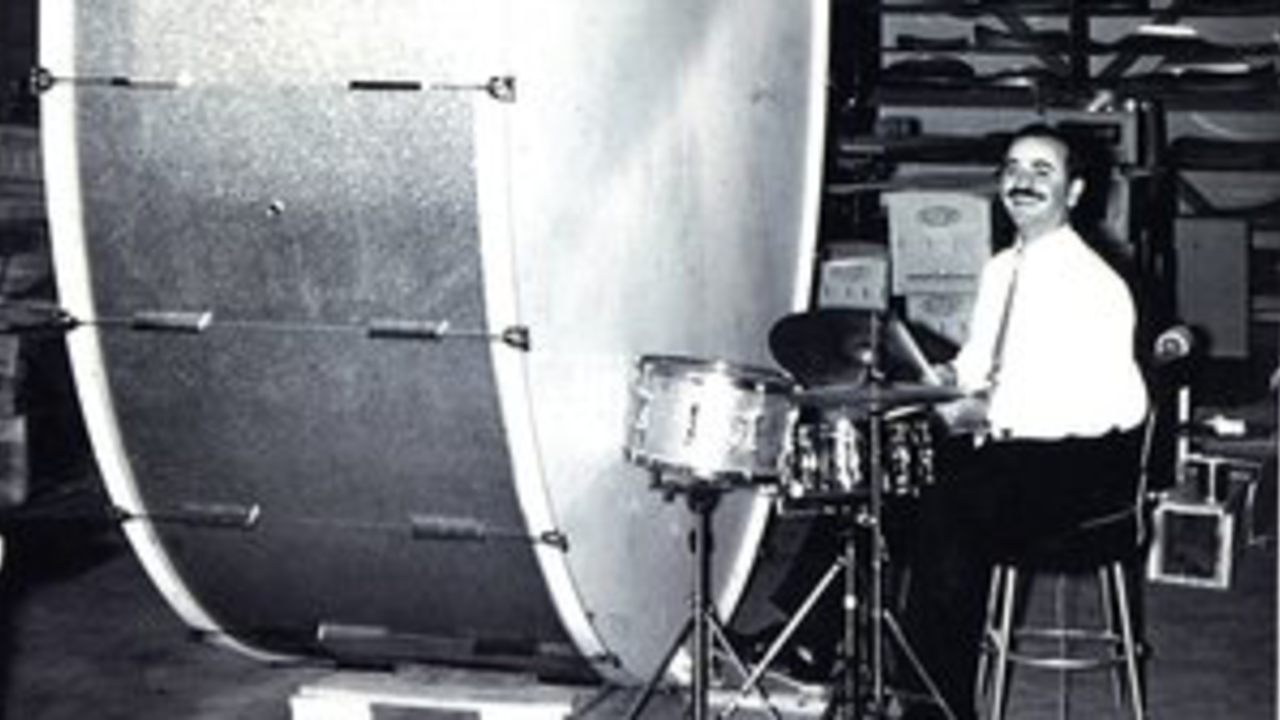
Have you ever struggled to get your kick and bass sitting just right? Have you ever found it hard to get them fat while still being in the same key? You are not alone, and you might be making things unnecessarily hard for yourself.
I've been hearing more and more about this lately. Just like the "high pass filter everything" rule, here is yet another Youtube tutorial tip that has been blown out of proportion. If you haven't already heard this one, a tip has been spread that "you must have your kick in key with your song". As you know, I am highly against the concept of rules that apply to every song. I am a firm believer of listening and approaching things case by case. Here is my take on when you should tune your kick, how you should, and when you shouldn't.
The time to tune.
The only times I think you need to have your kick in key with your song is when you are using a long tonal kick that has a clear note to it. e.g. big room boomy EDM kicks, Trap 808 kicks, and sometimes long Te...
Music Producer Tips From Tommy Trash
A while back I did a colab with my longtime friend Tommy Trash (under my alias TAISUN). It was a fun experience writing it. Tommy and I had been meaning to do a colab for years. Way back since we used to live together in Australia. We had remixed each other, but never a colab. So, we finally put some time in in the studio. It is always extra fun writing when it is with one of your best mates. I can’t recommend it enough. There were plenty of good times, laughs, and whiskeys. However, there was also lots of hard work and even some learning. Some of the main things that I picked up from working with Tommy were….
#1 Less Is More
I was already aware of this and am a strong advocate, but he took it to the next level and really emphasized it. Especially towards the end of the process. Once the track was basically done, we would go through, and mute/delete absolutely anything we could. If we could cut it, and it didn’t make much difference, then it was outta there. Sometimes this referred t...
Bass Kleph presets for Native Instruments Massive
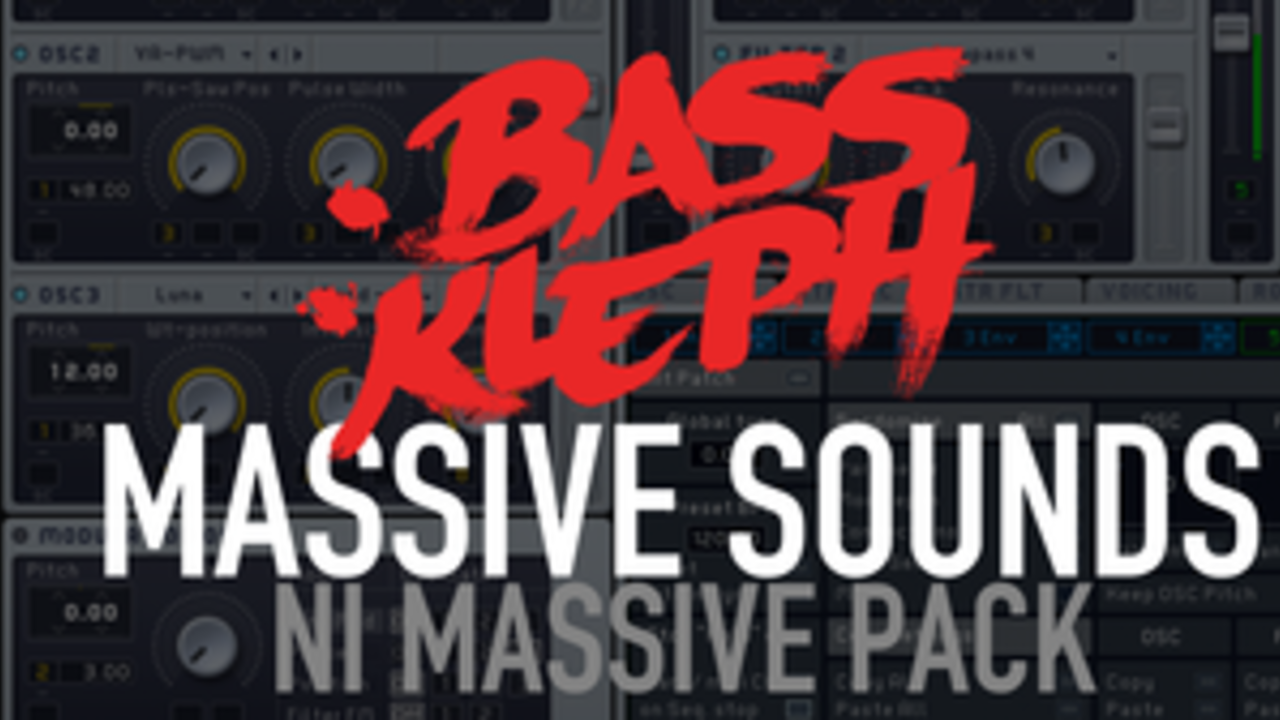
I know a few of you have been asking me about this for a while, and I love to give you guys what you want.
So, here's a pack of 125 of my favorite Massive patches that I've made for Bass Kleph and TAISUN.
You may recognize a few of them from my records. There are loads of Bass sounds, some Leads, FX, Synths, Pads, and many more!
Check out the audio previews below now!
Massive Sounds includes 125 Sounds! Here's the breakdown:
64 Bass Sounds, 22 Lead Sounds, 17 EFX Sounds, 15 Synth Sounds, 4 Pluck Sounds, 1 Pad Sound, 1 Chord Sound, 1 Brass Sound.
Not sure?



